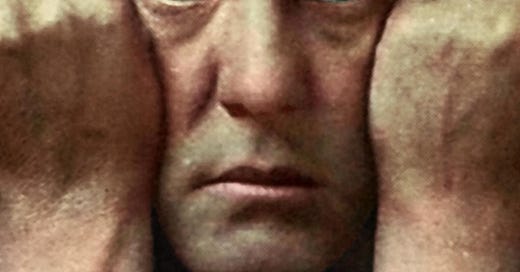Aleister Crowley's 1916 Vanity Fair review of Jung's Psychology of the unconscious
AN IMPROVEMENT ON PSYCHO-ANALYSIS
The Psychology of the Unconscious—for Dinner-Table Consumption
PSYCHO-ANALYSIS, the investigation of the nature of the mind, is an old diversion. But science—if it really be science—has found a new method for such analytical parlor games. By it the reactions of a man to various impressions, through the nerves, are measured. The quickening of his pulse, when the professor suddenly shouts the word "Muriel" at him; the depressed expression when he whispers the words "income tax"; all these can now be weighed in the scales of science.
After a laborious research of months the whole nature of the soul is laid bare, and the reasons of a preference for Cherrystones over Little Neck clams, unmasked. Even the character of a man's dreams is supposed by this school to reveal his hidden nature.
Professor Freud of Vienna is the best known of those who have been developing this line of study, but recently Professor Jung of Zurich, has challenged his teaching and his supremacy alike with a book called "Psychology of the Unconscious" (Moffat, Yard & Co.).
There is, in short, a split in the psycho-analysis camp. This essay will give in outline the main doctrine of psycho-analysis, and explain the nature of the quarrel between Freud and Jung. The subject is quite a fascinating one, and will probably be discussed at every dinnertable during the coming social season.




